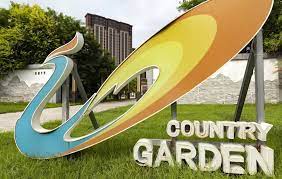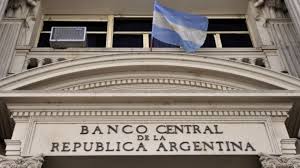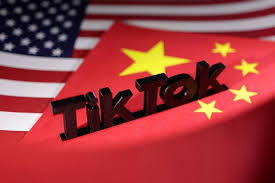Ping An Insurance Group has been approached by Chinese authorities, to acquire a majority share in the troubled Country Garden, which is the largest private property developer in the country, according to sources who are aware of the proposal.
Ping An has been tasked by China’s State Council, chaired by Premier Li Qiang, with assisting the local government of Guangdong province, home to both firms in organizing a rescue operation for Country Garden.
A representative for Ping An refuted the information, and stated that the company had not been contacted by the government.
Ping An states that “the government has not requested that Ping An take over Country Garden.” We vehemently refute this narrative. It is false,” the business said in a statement.
The insurance company, which is in competition with China Life to be the largest insurance group in the nation based on market value, refused to allow its chairman and founder, Ma Mingzhe, to be interviewed. Ma did not reply to an email requesting a comment. Ma also goes by Peter in English.
In intense trading, Ping An’s Hong Kong-listed shares ended 5.4% lower, devaluing the company by around $2.1 billion. A 12.2% increase in Country Garden’s shares valued the company at almost $3 billion, while other Chinese developers’ stocks experienced a similar boom.
One of the biggest government interventions to date to support the cash-strapped and heavily indebted real estate sector—which accounts for a quarter of China’s economic activity and has raised concerns about a wider financial crisis—would be a state-engineered rescue of Country Garden by Ping An.
The property and capital markets will greatly benefit if this is accurate, according to Xu Tianchen, senior economist at the Economist Intelligence Unit.
“Only equity injections, such as corporate takeovers or nationalizations, are likely to turn around the confidence of home buyers and investors and materially change the situation.”
REDUCING RISK
Authorities are anxious that any concerns arising from Country Garden’s liquidity issues do not extend to the broader economy.
Ping An has been requested to provide the plan’s details and will have the flexibility to negotiate the conditions of any agreement, even though enterprises in China are rarely able to refuse requests from the central government.
Discussions between the Ping An leaders and the authorities started in late August and are still in the preliminary stages.
Ping An has been requested to perform due diligence on Country Garden, and regulators are aware that the insurer is a publicly traded business that must answer to shareholders.
September saw some discussions on Country Garden’s rescue between Ping An and the Guangdong local government.
Two sources indicated that representatives from the People’s Bank of China (PBOC), the country’s central bank, are in charge of leading talks between Ping An and the authorities. These representatives include those from Country Garden.
They said the discussions also involve the National Financial Regulatory Administration (NFRA).
One individual with firsthand information and one briefed on the proposal claim that authorities want Ping An to acquire a stake of more than 50%.
Yang Huiyan, the chairperson and daughter of a co-founder, is the main shareholder of Country Garden, owning around 52% of the company. According to four sources, authorities would like Ping An to gradually invest funds into Country Garden in order to alleviate the developer’s liquidity issues should it take control of the company.
The market has declared the real estate developer to be in default on around $11 billion worth of offshore bonds after it missed a deadline to pay $15 million monthly last month.
Country Garden has stated that it hopes to find a “holistic” solution to its problems and anticipates not being able to pay off all of its offshore debt.
Additionally, two of the sources stated that Chinese officials are keen to use the proposed acquisition as a model for other financially distressed developers.
GUANGDONG OPERATIONS
Guangdong authorities are eager to find a solution for Country Garden’s liquidity issues. Based in Guangdong and having been a significant stakeholder in Country Garden, Ping An was an obvious choice.
Ping An has announced that it has sold its holdings in Country Garden. As of August 11, Hong Kong stock exchange statistics indicated that it held a 4.99% stake.
In China, state-engineered takeovers of one enterprise by another are not unprecedented. However, there hasn’t been one in the real estate sector since Beijing announced plans in 2020 to address the excessive levels of debt in the sector, which led to a liquidity crisis.
Despite the fact that numerous other Chinese real estate developers, such as the massive China Evergrande, have fallen behind on their payments, the majority of policy initiatives have focused on reducing mortgage rates and loosening regulations to make it simpler for individuals to purchase homes.
However, China Vanke’s largest shareholder, state-owned Shenzhen Metro, announced on Monday that it has developed “market tools” valued at 10 billion yuan ($1.4 billion) to assist the nation’s second-largest developer. This indicates that the government is willing to take a more active role.
At the end of June, Country Garden’s total liabilities were 1.4 trillion yuan, or $190 billion. Over 3,000 projects are being developed by it across the country.
Authorities have already called on Ping An to save a failing business.
In 2021 and 2022, it took part in state-directed assistance for the Peking University Founder Group. Its principal subsidiary, Ping An Life, participated in a group that restructured the group’s debt before acquiring a 67% stake in the restructured business.


















